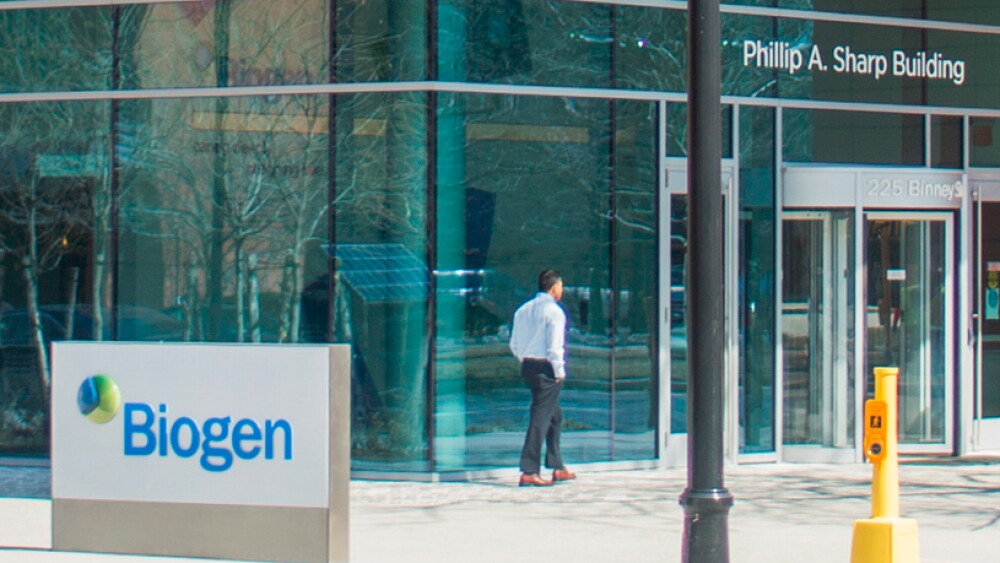January 13, 2017
By Mark Terry, BioSpace.com Breaking News Staff
Cambridge, Mass. – Biogen is a company that likes to swing for the fences. Rarely content to make modest, incremental improvements or focus on “me too” drugs, it tries to knock each one out of the park. It seems to have done so with recent data reported on its Phase III ENDEAR trial of Spinraza (nusinersen) for infants with spinal muscular atrophy (SMA). But its staggering price tag is likely to further ignite the controversies of drug pricing.
Biogen reported at the British Paediatric Neurology Assosciation (BPNA) conference in Cambridge, UK this week on its trial of Spinraza. In August, the company indicated that the trial met its pre-specified primary endpoint at the interim analysis. In fact, it was so successful that the study ended early so that all the trial participants would have the option to receive the drug in an open-label extension study.
The data released this week shows why. What it broadly breaks down to is that in the infants in the trial who did not receive the drug, 68 percent either died or needed permanent ventilation. In the portion receiving the drug, only 39 percent died or required permanent ventilation. What that comes to is a 47 percent decrease in the risk of death or permanent ventilation.
“These data further underscore the impact Spinraza may have on individuals living with this devastating disease,” said Wildon Farwell, Biogen’s senior medical director, Clinical Development, in a statement. “We are very encouraged that individuals with SMA have already started treatment with Spinraza this week in the U.S., and we continue to work closely with regulatory agencies to bring this therapy to patients around the world as quickly as possible.”
SMA is a rare, autosomal recessive neuromuscular disease characterized by the degeneration of alpha motor neurons in the spinal cord. This results in progressive muscle weakness and paralysis. According to the Orphanet Journal of Rare Diseases, the estimated incidence is 1 in 6,000 to 1 in 10,000 live births.
According to Leerink analyst Geoffrey Porges in a research note, Biogen expects approximately 1,700 patients will start Spinraza treatment in 2017 and 2018. In the U.S., according to the SMA Foundation, there are estimated to be between 9,000 and 25,000 SMA patients.
The controversy of Spinraza is that it is being priced at $750,000 for the first year and $375,000 for each year afterwards. John Carroll, writing for Endpoints News, says, “This drug, and the steep price tied to it, is firing up the debate over pricing new drugs at a time the industry has begun to seriously grapple with the controversial issue for the first time. Landmark new drugs are generating sticker shock over the wholesale price, but also demonstrate the potential for major medical advances for patients.”
Patients receive six injections in the first year at about $125,000 per shot.
Aware of this, Biogen has launched SMA360, which, as it describes, “provides certain services that address nonmedical barriers to access in the U.S. These include logistical assistance, product education, insurance benefits investigations and financial assistance.”
It also launched Together in SMA in the U.S. and Japan. It is a program to provide informational materials and resources to the SMA community.
It’s no surprise that rare drugs are expensive, given the small market, typical lack of competition, and no alternative treatments for generally fatal diseases. Insurers and regulators have created incentives to give companies a reason to pursue the development of those drugs, even though their resultant prices feed the controversies over drug prices in general. As reported by Xconomy, when asked how Biogen came up with the price, company spokesperson Matt Fearer said it balanced “a number of important factors, including its clinical value, its impact to patients and the health care system as a whole, and the need for Biogen to fund further research and development to make the next innovation possible.”
According to EvaluatePharma, the average price of a rare disease treatment between 2010 and 2014 was $11,820 per patient. Nonetheless, that places Biogen’s Spinraza on the very upper edge of the rare disease price rate.





